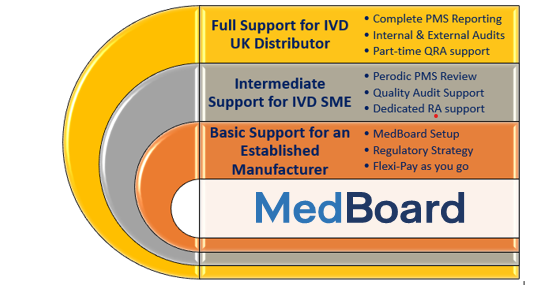
In this blog we are going to discuss our views on the benefits and need to have and maintain your Quality Management System (also known as a ‘QMS’)
IVDeology have decades of experience supporting IVD companies and manufacturers all across the globe with their Compliance journey within Quality and regulatory, and Jo Angell, our Quality and operations coordinator at IVDeology talks about the importance of a QMS that can grow with you, having experienced managing IVDeology’s own Quality management system internally at IVDeology as well as setting up and hosting other companies QMS.
What is a QMS?
- Quality is defined as the “degree to which a set of inherent characteristics of an object fulfils requirements” [ISO 9000:2015, 3.6.2]
- A management system is a set of interrelated or interacting elements of an organization to establish policies and objectives, and processes to achieve those objectives. [ISO 9000:2015, 3.5.3]
The 2 main standards covering QMS for Medical Device (including In Vitro Diagnostic (IVD)) manufacturers are:
- ISO 13485:2016 Medical devices — Quality management systems — Requirements for regulatory purposes specifies requirements for a quality management system where an organization needs to demonstrate its ability to provide medical devices and related services that consistently meet customer and applicable regulatory requirements.
- ISO 9001:2015 Quality management systems — Requirements is a globally recognized standard for quality management. It helps organizations of all sizes and sectors to improve their performance, meet customer expectations and demonstrate their commitment to quality.
For medical laboratories, where IVDs are used or developed as a Lab Developed Test (LDT) the additional ISO 15189:2022 Medical laboratories — Requirements for quality and competence, can be utilised.
Why have one?
It is true that establishing and maintaining a Quality Management System requires additional investment, both financially and from a resource perspective, there are substantial benefits for having one:
- Demonstrates to customers your commitment to quality
- Standardisation of processes
- Consistent training throughout the organisation
- Ensures continuous improvement
- Improved productivity and efficiency
- Reduced waste steps
- Improved customer satisfaction
- Ensures controls are in place to make safe and effective products
- Identification and control of risks
- Control and assessment of suppliers
An effective QMS can provide a solid foundation of quality and safety in a consistent and well-organised ecosystem
You will need one if you are intended to place IVDs on market
As a legal manufacturer of an IVD or medical device a QMS must be implemented and compliant to the applicable regulations where you place your device on market. For EU CE marking under the new IVDR transitional timelines, this shall be no later than 25th May 2025. This is less than 12 months away!
Who’s responsible for maintaining the QMS?
Typically, this is the role of the Quality contact in any organisation. However, establishing a quality culture, and ensuring the QMS has been built, and maintained effectively is the role of the organisations top management. They need to demonstrate leadership and a commitment to the QMS.
Maintaining your QMS
A good and efficient QMS supports your company with the best way to do things, by having input from across the organisation these processes can be agreed on and will be committed by everyone in your organisation. An effective QMS should be everyone’s objective, not just Quality!

A QMS should grow as your organisation grows
A QMS is not a one size fits all, it needs to build and grow with your organisation and will never be a finished article, it should always be continually improving. The complexity and scope should also reflect the nature and size of your organisation.
eQMS are great but…
Electronic QMS software provide a great tool, but you need to build the QMS with you in mind. These will never be an off the shelf ready to go package. All templates will need to be customised and adapted to fit your organisation and processes, otherwise the QMS just won’t work.
You have the certificate and placed the product on market – but what next?
In a previous blog, we discuss the challenge of Post Market Surveillance, and what is expected , mainly from a UK point of view:
“The manufacturer shall institute and keep up to date a systematic procedure to review experience gained from devices in the post-production phase and to implement appropriate means to apply any necessary corrective actions, taking account of the nature and risks in relation to the product.”
This means that as manufacturers you still need to be collecting data on how effective your device is – monitoring your customer complaints and feedback, any incident reporting, your manufacturing information, looking at your trends, to mention just a few possible sources of information. This data should then be reviewed to determine whether any updates are required and if so, these actions should be documented appropriately. Potential updates could impact your:
- Risk Management File – Is the Severity of the risks impacted? Does it impact your frequency of occurrence of known risks? Are there new risks that you haven’t included?
- Instructions for Use & Labelling – Do you need to add additional warnings? Are your instructions clear enough?
- Training – Is any training that you provide sufficient? Is additional training necessary for your users?
- Other products – Does the issue impact other devices you manufacture
5 Top Tips from the team on how to effectively build and maintain a QMS
- Get buy in from senior management – if they don’t understand what a QMS is, and why it is important (and not just required), it will never be supported and managed effectively.
- It is a growing, living thing, the more you feed it, the stronger and more robust it will be. It needs love and attention to get the most out of it.
- QMS software will save you time and money in the long run.
- Most non-conformances are raised against your own processes, not the standard. Make your procedures as simple and as clear as possible, ensure the people doing the work are involved in creating the processes, they know their processes the best!
- Use internal audits to strengthen and improve your QMS and use your business risk assessments as a tool to help the business overcome challenges and move on new opportunities
If you’ve got this far, you’ll hopefully understand the importance of a fully functioning and certified QMS but may be worried about where to start. At IVDeology (an Abingdon Health company) we offer full service solutions for QMS amongst our nose-to-tail regulatory support services. We can support you by:
- Being Legal Manufacturer (all QMS responsibility lies with us)
- Build your QMS for you
- Host your QMS within our ISO certified system or we can put you in touch with Cognidox, a QMS system we use at IVDeology ourselves
Our team of experts have a proven track record for the development and maintenance of Quality Management System ranging from SME to large IVD manufacturers. To hear more about how we can support, please contact [email protected] or click ‘get in touch’ to book in with our customer success coordinator









